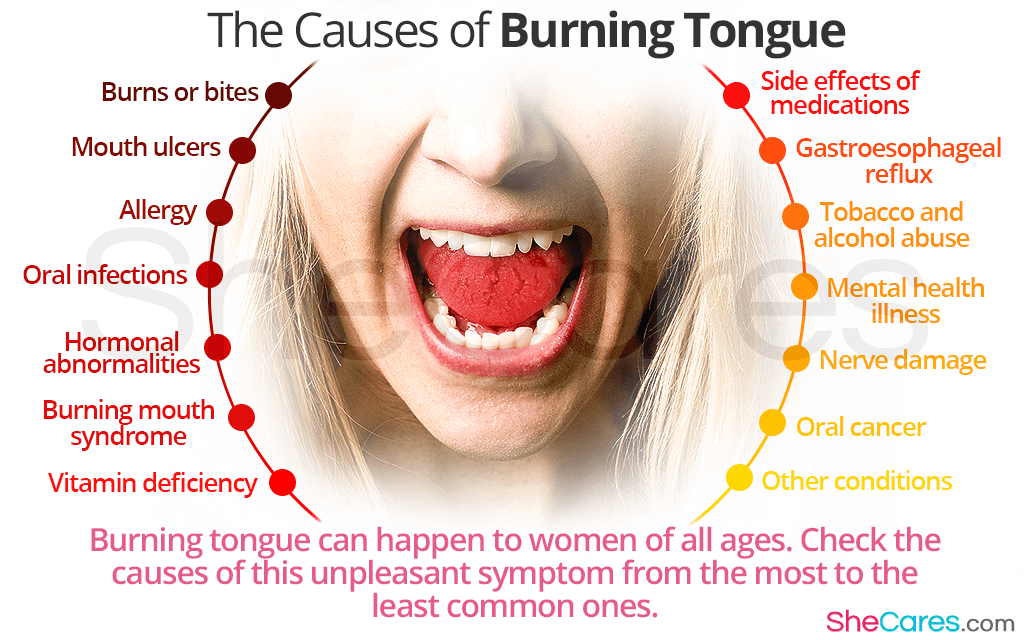You might not have heard of a burning tongue until you have suffered from this painful sensation yourself. Women are more likely to experience it than men, especially if they are middle-aged and are going through menopause. Burning tongue,; however, can happen to women at all ages for a wide range of reasons. Check on the following causes of burning tongue from the most common to the less common ones.
Most Common Causes
Burns or bites mostly occur by accident and are responsible for the majority of acute burning or painful tongue sensations. Dentures that are poorly fitted might also cause irritation and burning in the mouth
Mouth ulcers, known as canker sores, are painful and can appear on the tongue, throat, and lips. They are caused by vitamin deficiencies, hormonal imbalances, and more.
Allergy to food, dyes used in food, as well as chemicals in cosmetics or dental products can trigger a number of symptoms, such as burning tongue, swelling, or itchiness.
Oral infections can be caused by bacteria, viruses, or fungi and can produce burning tongue as well as other symptoms, like swelling, patches, or puss. These infections can often result from poor dental hygiene.
Hormonal abnormalities might include fluctuations of reproductive hormones, estrogen and progesterone, which are common throughout women's life. It can also relate to abnormal thyroid hormones, such as T3, T4, and TSH, leading to hypothyroidism, and TSH, as well as insulin abnormalities, causing diabetes.
Burning mouth syndrome (BMS) is often idiopathic in its nature, which means its causes have not been identified. It produces a burning sensation in the tongue and other parts of the mouth, such as the gums, throat, lips, or root of the mouth, along with pain and dryness.
Vitamin deficiency is often overlooked when diagnosing burning tongue and mistaken for BMS. Low levels of vitaminsB-complex, zinc, and iron can result in often painful burning-like sensation in the tongue.
Side effects of medications used to treat hypertension, antiviral drugs, and anti-depressants might be the underlying cause of a burning tongue sensation.
Gastroesophageal reflux is a condition in which acid from the stomach re-enters the mouth, irritating it and causing tongue burning.
Less Common Causes
Tobacco and alcohol abuse might also affect the muscles and tissues of the mouth, and result in tongue pain.
Mental health illness, such as depression or anxiety, especially when accompanied by prolonged stress, can trigger numerous physical symptoms, including burning tongue.
Nerve damage might result from an injury or oral surgery complications and produce a number of symptoms, such as burning tongue, loss of or reduced sensation, or tingling.
Oral cancer does not always give clear symptoms, but sometimes burning tongue or frequent, hard-to-treat mouth ulcers might be its indication.
Other conditions, such as lichen planus or geographic tongue, Pemphigus vulgaris, and Behcet's disease, are rare, but can also produce a burning tongue symptom.
When burning tongue is not accompanied by other physical symptoms, such as discoloration or swelling, it might be difficult to diagnose. Many women report that their condition had been continually misdiagnosed for several years before the correct underlying cause had finally been identified. For this reason, it is important to inform your doctor about any alarming sensations in your tongue and the rest of the mouth to prompt the diagnosis and prevent burning tongue from affecting your life.
